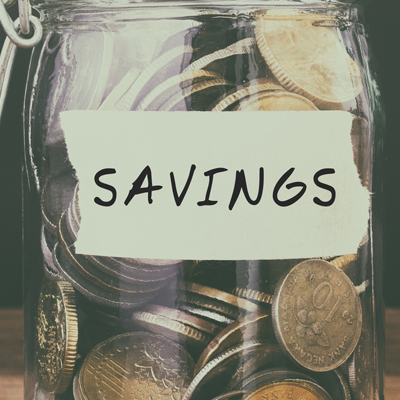A. They can help maximise your savings with higher interest rates, and some offer extra rewards for saving more.
B. They pay interest on your deposit balance, so they’re good if you have a lot of money to set aside.
C. They’re no different from any other bank account.
A. Most banks pay you a base-tier interest rate for deposit accounts, and some offer higher interest rates that reward you for more frequently using the account.
B. Interest rates for deposit accounts differ between banks and accounts, so it pays to do your homework.
C. I’m not sure what kind of interest a deposit account generally yields.
A. Standard deposit accounts don’t generally have a fixed term. Fixed deposit accounts, on the other hand, lock up your money for a set term.
B. No – you can use a deposit account to pay your bills, so you must have access to your money when you need it.
C. Yes, and I’ve heard that some deposit accounts expire if you don’t use them within the fixed term.
A. It’s a small fee that some banks charge if your average daily balance falls below a set minimum.
B. It’s a fee the bank charges you if you don’t save enough money.
C. It has something to do with letting your account balance fall below zero.
A. Some banks may charge a monthly service fee, and possibly an early account closure fee, so you should always read the fine print.
B. You might have to pay certain administration fees, but deposit accounts are generally low-fee accounts.
C. I don’t know what the specific fees are, but I’ve heard that deposit accounts are expensive to maintain.
A. Yes. Many deposit accounts are transactional, and some reward you with bonus interest rates for making salary credits and bill payments.
B. Yes. My employer pays my salary straight into my deposit account.
C. No. I think you need a different account for your day-to-day transactions.
A. There is virtually no risk associated with a Singapore dollar deposit account. The Singapore Deposit Insurance Scheme safeguards Singapore dollar deposit accounts up to a maximum of S$75,000 in aggregate per depositor per Scheme member.
B. Generally, deposit accounts are much lower risk than many other investment types.
C. I am not sure how risky deposit accounts are. There is always some risk associated with financial products. You can never be 100 per cent sure.
Mostly As: Expert level
Congratulations! You know your savings options well and understand how to use deposit accounts to maximise your savings. You likely already have your money in a high-performing deposit account with bonus interest rates in effect, and you’re probably in a good position to achieve up to 2.38% per annum interest on your first eligible deposit balances of up to S$80,000 in a Bonus$aver account.
Mostly Bs: More to learn
Well done! You have a good grasp of basic savings tools, but there are a few things you can still learn about them to maximise your savings. Reward accounts such as Bonus$aver offer you bonus interest when you consolidate your card spending, salary credit, bill payments and wealth needs into one account. This ensures that your money is working as hard as possible for you.
Mostly Cs: Just getting started
Okay, so you have better things to do than think about savings tools. However, there are a few things you should get clarity on to make sure you’re not losing money. Deposit accounts are generally very low-cost and low-risk, and using an account such as Bonus$aver for your day-to-day transactions can score you a pretty sweet interest rate. And that means more money in your pocket.
Want to learn more about how to maximise your savings? For help, get in touch with us.
This article is brought to you by Standard Chartered Bank (Singapore) Limited. All information provided is for informational purposes only.











